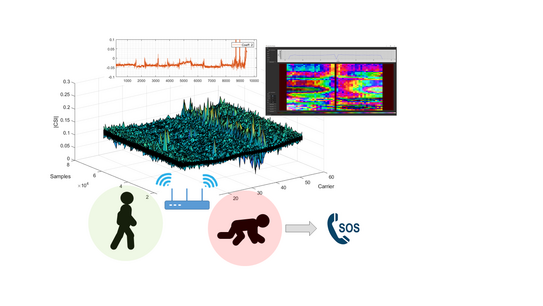WiFi Sensing

In this project, intelligent algorithms for the passive evaluation of Wi-Fi signals are developed to detect events or the state of the spatial environment. For example, to detect the presence of persons or the position of objects in a room and to use this information in intelligent home-automation or care-systems. Applications in the field of ambient assisted living or smart home can benefit from the processes developed for this purpose.
The starting point is the evaluation of existing radio signals of the Wi-Fi devices available everywhere today. Thus, no additional hardware effort and no further radio signals are emitted. The advantage of a detection using Wi-Fi is that no direct visual connection between the radio components is required. In addition, unlike camera-based systems, Wi-Fi-based detection does not identify specific persons, enabling them to meet strict data protection regulations and avoid user concerns. Alternative concepts such as specialized radar systems, on the other hand, would depend on additional hardware resulting in additional cost and installation effort.
The project expands scientific knowledge in the field of modelling radio channels and combines sophisticated signal processing with strategies of machine learning.
The developed algorithms are optimized based on real measurement data and statements concerning the reliability are derived from them. The projected performance is evaluated by implementing real-world applications on microcontrollers of typical IoT devices.



